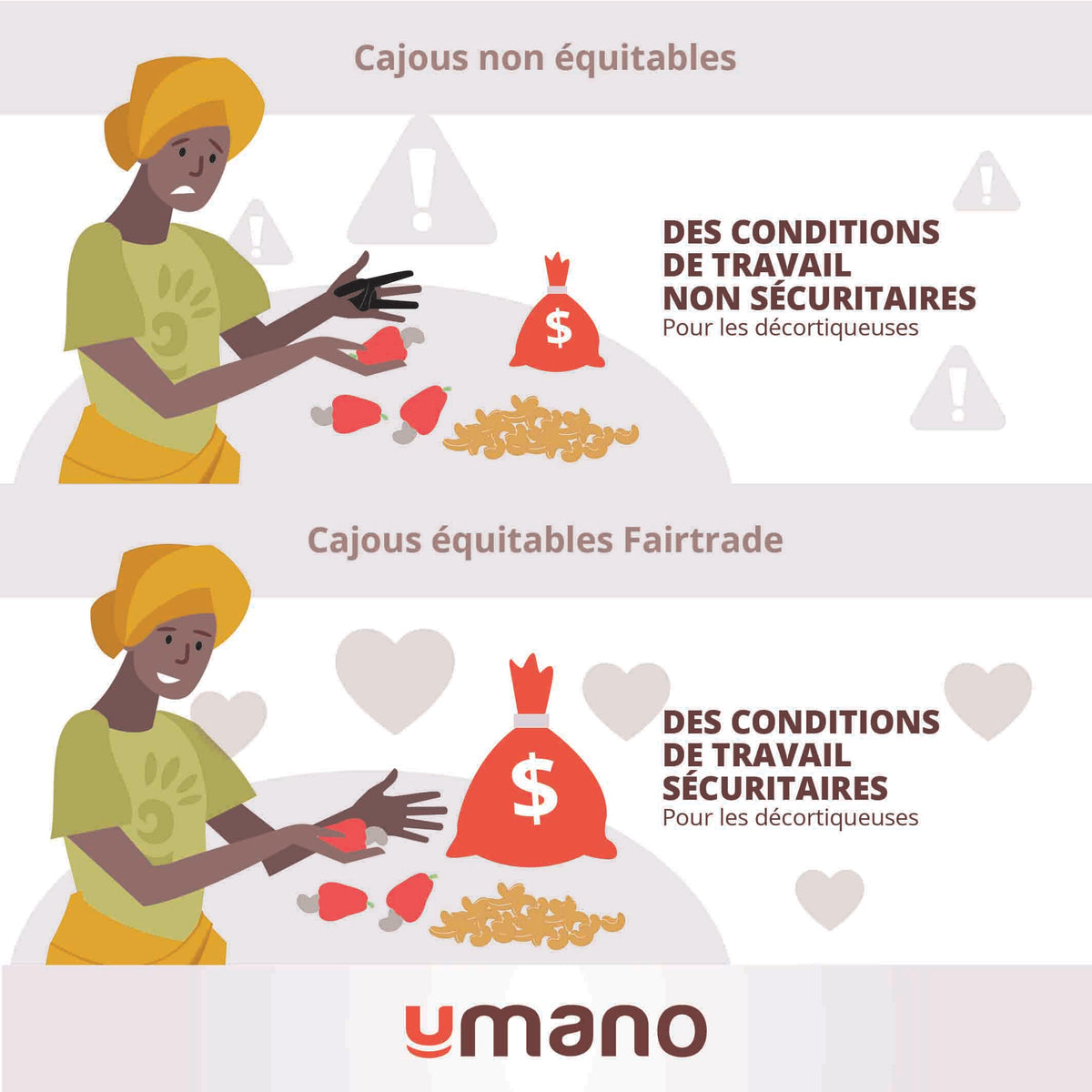Why choose fair trade cashews?

Do you know all the benefits of Fairtrade cashews over non-Fairtrade ones? Here are the different benefits and impacts of purchasing fair trade cashews illustrated.

The most common advantage is of course the remuneration to cashew producers, much higher in the case of a fair trade exchange.

The majority of cashew nuts that are produced in West Africa are sent to Asia for processing and shelling. They are then rerouted to North America and Europe for consumption. An indirect supply chain is obviously more expensive in terms of fossil energy.
In the case of Umano fair trade cashews, they are processed at the place of production. The nuts are therefore sold and sent directly by the producers to us.

Shelling cashews can burn the skin on the hands of people processing them, most often women. In the Fairtrade system, the health and safety of hullers is considered, in addition to offering them fair remuneration for their work.

Fair trade cashews cost consumers on average 20% more. If we take, for example, a consumption of 10 kg per year at $5 more per kg, we calculate $50 more for fair trade cashews. This represents a very small proportion of the median annual income of a Canadian. However, the sale of fair trade cashews increases producers' income by 40%. This means a huge gain for them!
With such low cost impact, which cashews will you choose?
For more details, refer to our previous blog posts:
Why are Fairtrade cashews more expensive?
Clean hands for fair cashews
Get Umano Fairtrade certified cashew nuts in our online store.
